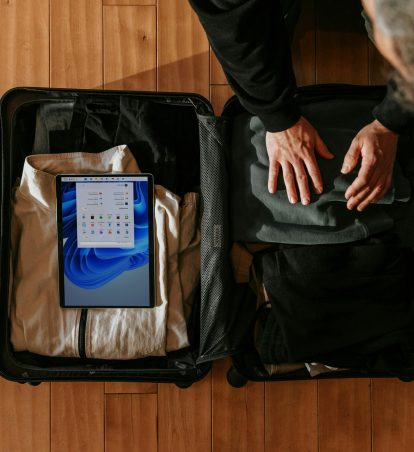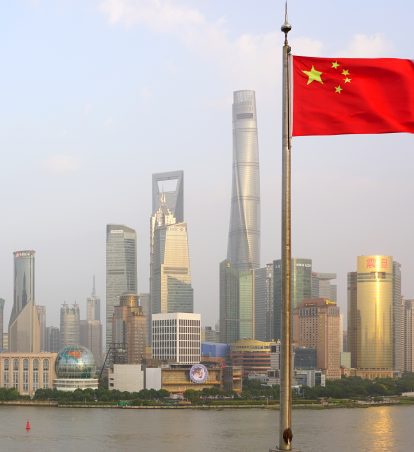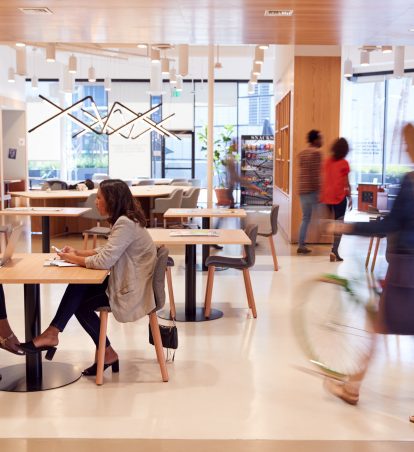Explore The Future of Global Mobility in APAC
It’s official—global mobility in APAC is set to soar. Having stepped firmly into its post pandemic era, the Asia Pacific region has witnessed a remarkable surge in the movement of talent both across the region and around the world—and it’s bringing with it a period of change.
Last month, Synergy’s Director of Sales, APAC, Joe Low and Global Account Manager APAC, Estelle Ho, conducted a roundtable discussion at the Forum for Expatriate Management (FEM) in Singapore. Their overarching objective was to engage with industry partners to explore practical solutions mobility professionals can adopt to maintain a frictionless global mobility programme through fluctuating market conditions and traveller requirements.
Join us as we take a deep dive into five of the key points discussed, and what this means for you and your mobility strategy.
Policies are changing—and flexibility is key
Despite taking longer than the rest of the world to bounce back from COVID-19 restrictions, workforce mobility has accelerated across Asia Pacific as companies discontinue working from home.
Studies across the region indicate that organisations expect to see an increase in long-term assignments for the remainder of 2023 and into 2024, with a significant growth in the uptake of virtual assignments.

The same study found that as much as 60% of organisations are allowing remote work as part of global mobility management, with 40% implementing a formal virtual relocation policy. This number is only expected to grow as the demand to work in such a way becomes a key factor in the attraction and retention of talent globally.
During Synergy’s roundtable, Joe Low noted the need for suppliers to provide more flexible solutions to cater to the requirements of diverse workforce demographics. For mobility managers, this could look like adopting alternative accommodation options such as larger accommodation types or solutions with co-working spaces to facilitate a productive and comfortable work-from-home experience.
The Rise of Gen Z and Y
The modern global workforce is undergoing a significant shift as Generation Z and Millennials, collectively referred to as Gen Z and Gen Y, take centre stage. Recent studies reveal that Gen Z and Y already make up approximately 38% of the global workforce, with this figure set to increase to a whopping 58% by 2030.
Having grown up alongside the rise of technology, Gen Z and Gen Y are typically referred to as “digital natives”. For these groups, the ability to be able to use technology to conduct all elements of their mobility programme is no longer a “nice to have” but an expectation, as is the ability to work from home—particuarly for Gen Z who entered the workplace during the disruption caused by the pandemic.

Despite this virtual approach being a norm for Gen Z and Y, the same groups have also cited loneliness, dissatisfaction with remote workplace cultures and a lack of experience with cultivating in-person relationships. During the roundtable discussion, Joe and Estelle urged global mobility managers to consider co-living accommodation types as a solution to such challenges.
Co-living accommodation types represent a contemporary approach to communal living which provides guests with a fully-furnished apartment within a shared environment, prioritising community and convenience at an affordable price—a win-win for both travellers and bookers given the turbulent economic landscape we find ourselves in. You can learn more about the benefits of co-living here.
The Move to Net Zero
As the world grapples with the effects of climate change, the focus on environmental sustainability within workforce mobility has gained more and more traction.

By embracing innovative strategies and technologies, mobility managers can lead the behavioural change towards more eco-friendly mobility solutions—this could include anything from setting carbon budgets, to promoting sustainable transport and accommodation options, alongside the effective tracking of carbon expenditure.
Serviced accommodation is a great option for mobility managers to consider when weighing up alternative, eco-friendly strategies. Not only are serviced accommodation options more sustainable than hotels by their very nature, but they can also provide the additional space required to support a productive virtual relocation policy which would reduce the time required for assignees to travel to and from their office.
The Growth of Secondary Markets
Following fluctuating market conditions and meaningful geopolitical events, global organisations are increasingly expanding their operations into secondary markets. These markets often represent untapped potential and can act as a buffer against economic or political uncertainties as companies look to spread risk and maintain growth.A great example of this is the growth of countries like Vietnam as a manufacturing centre after organisations sought to move away from China following its zero-COVID policy.

Despite there being substantial commercial benefits to making such a move, global mobility managers are typically faced with a number of challenges ranging from compliance to safety concerns, to sourcing suitable accommodation, to ensuring assignee wellbeing remains intact as they adapt to a new culture.
Sending associates overseas, particularly to remote locations, can be an anxiety-fueled experience for some assignees, making the professional end-to-end management of such a programme all that more important. Global mobility managers should consider collaborating with local service providers who can not only support them in navigating and understanding the market, but one who can provide a consultative end-to-end approach.
Merging of travel and mobility

As fluctuating market conditions and traveller behaviours blur the lines between business travel and global mobility management, it is becoming more common to see the two departments merge. During Synergy’s roundtable, participants shared that although they haven’t merged departments, they are seeing growing collaboration between the two.
Such cross-departmental collaboration has the potential to support organisations in combining spend, which in turn may result in additional cost savings and enhanced data analytics. In a world where companies are under more and more pressure to contain costs, and managers are required to seek additional approvals prior to booking travel, we are seeing organisations push travellers to take longer, more meaningful trips with a strong focus on ROI. Not only does this help drive costs down over time, but it may even support overarching sustainability objectives.
How Synergy Can Help
At Synergy, we specialise in the end-to-end management of serviced accommodation programmes wherever in the world our clients need us to be, and for however long. As a global leader in programme management, we see it as our responsibility to act as a thought leader and remain ahead of the curve for our clients as we seek to push the boundaries of global mobility.
Our goal is to make it easy for you to achieve your objectives through the delivery of a cost-effective corporate housing solution, tailored to your overarching organisational objectives and without any compromise on guest experience.
More specifically, Synergy can provide:
- Consultative, end-to-end programme management which targets your specific mobility and overall organisational objectives
- Access to over 165,000 fully vetted serviced apartments, spanning 85+ countries and 2,000 cities
- Access to award-winning, high touch service teams who will go above and beyond to deliver your business travel objectives
- A consistent guest experience wherever in the world your travellers are
- Innovative and flexible corporate housing solutions to meet the ever-evolving requirements of the modern day assignee.
Ready to learn more about how Synergy can enhance your travel programme? Tell us what you need and our local teams will be happy to support you.





